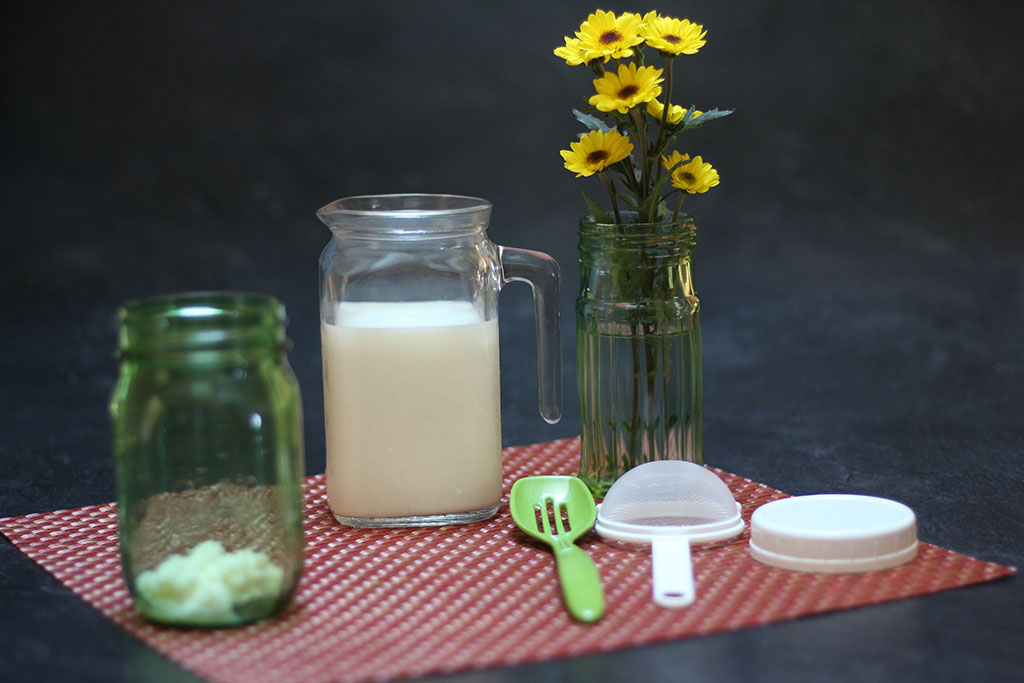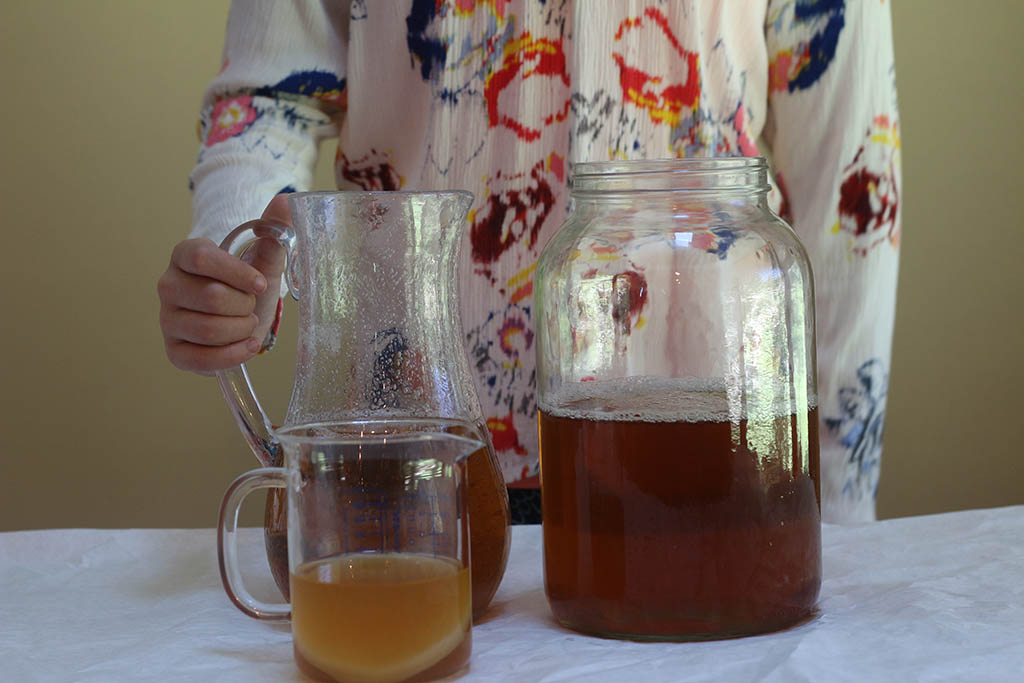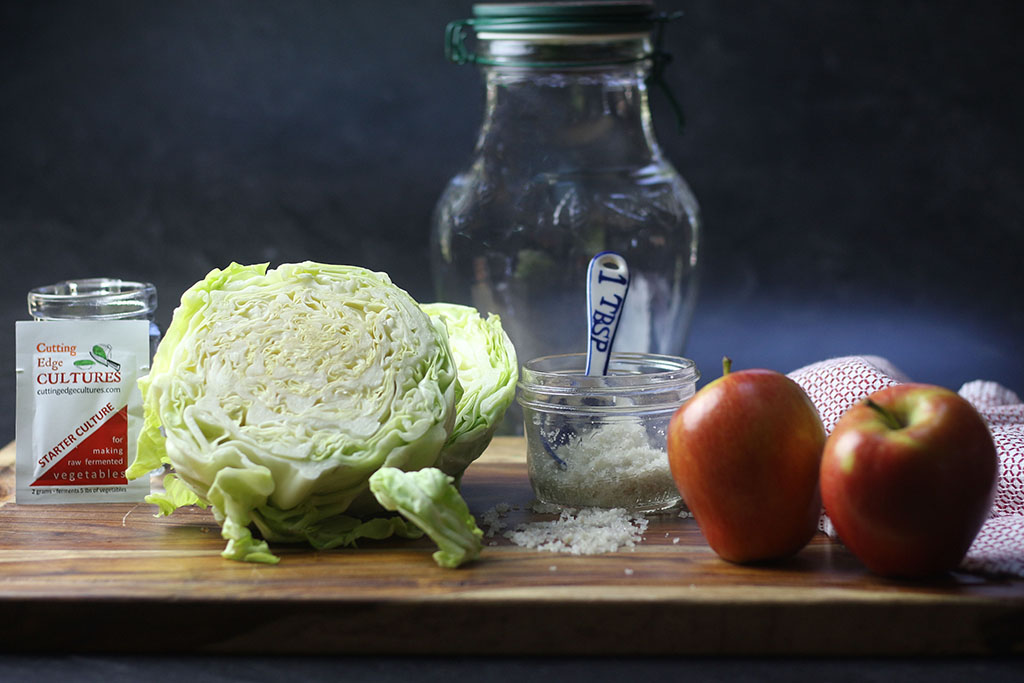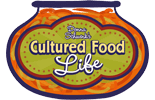
Can Your Gut Heal Your Joints?
When I first started with cultured foods almost two decades ago, one of the first things I noticed was the relief of joint pain in my knee. This was in the very beginning of drinking and making kefir every day. If I quit drinking kefir, it only took about three to four days before the pain would return, so I kept drinking my kefir! Kefir wasn't the only cultured food that helped me with pain in my joints - kombucha and cultured veggies have helped me too. I have gotten many emails sharing similar stories and research is starting to understand the power of microbes in the gut. New evidence has come forth showing that those with different forms of arthritis have different bugs in their gut that cause inflammation and autoimmune disease.1 So here is what I've learned and I hope it will shed some light on what's really going on in the body when it flares up with joint pain or arthritis.
Microbes In Your Gut
All Disease Begins In The Gut
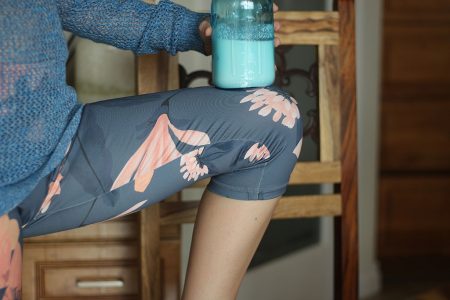
If you have an inflammatory type of arthritis, changing your diet and consuming cultured foods loaded with probiotics might be very important for you. Consuming lots of beneficial bacteria appears to have an impact on inflammation, reducing common biomarkers of inflammation, including C-reactive protein.
Sonya Angelone, registered dietitian, nutritionist, and spokesperson for the Academy of Nutrition and Dietetics stated, “People with inflammatory arthritis have been shown to have inflammation of the intestinal tract, which results in increased intestinal permeability. This enables certain bacteria to cross the intestinal barrier, get into the bloodstream and trigger an inflammatory response. Probiotics may be able to help decrease the inflammation associated with increased intestinal permeability. A healthy diet helps keep the intestinal barrier strong and the immune system in top fighting condition.” Angelone adds, “Healthy foods and probiotic supplements can work together to keep joints healthy and also keep the rest of the body strong.”
Studies On Probiotics And Arthritis
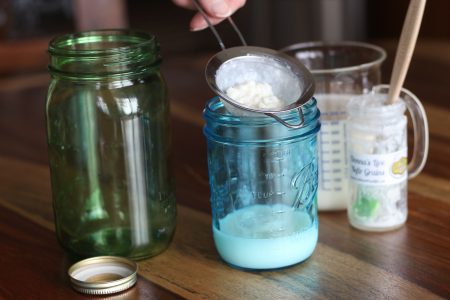
Another study on RA was done using a 3 specially designed probiotic made to survive harsh stomach acids. Most probiotic supplements are killed in stomach acids while probiotic foods have a protective halo that helps them survive and speed to the parts of the body where they can thrive and flourish. This study was a double-blind, randomized controlled trial using the probiotic Bacillus coagulans GBI-30, 6086. The subjects were given the probiotic once a day for 60 days in addition to their standard anti-arthritic medications.
The results of the study reported significant improvements in pain assessment score when compared to the placebo. Those receiving the Bacillus supplement reported improvements in global and self-assessments of disability, the ability to walk two miles, physical reach, and the ability to participate in daily activities.
This has sparked exciting new possibilities in intense scientific research in the gut microbiome and arthritis. Maybe Hippocrates was right!
Dr. Mercola from the Mercola Natural Health Center and alternative medicine proponent has a wonderful story of a woman named Sarah. Dr. Mercola helped put her rheumatoid arthritis into remission.
Sarah was only 28 years old and was experiencing a lot of pain. When she went to a well-known rheumatologist in Milwaukee, he told her she needed to stop running or risk becoming permanently disabled. She was put on the drug methotrexate which is actually an anti-cancer drug. The side effects of this drug can be quite horrible. Her liver was checked every month and she began losing some of her hair. A rheumatology researcher told her to keep taking the drug, but expect it to shave fifteen to twenty years off her life.
Sarah stated, "I was really afraid of what that drug was going to do to my body. The physical therapist who recommended I get tested for RA said there was a lot I can do naturally. So I read a lot of books about rheumatoid arthritis and different alternative treatments. I read there's a possibility of it being connected with an infection, and that a low dose of antibiotics was being prescribed. I then came across your name in a book. I looked you up, found you in Chicago, and made an appointment."
She started on a new regimen and changed her diet quite dramatically with healthy fats, proteins, and fermented foods and the results were spectacular. In Sarah's own words, "I learned how to ferment my own vegetables and dairy products. I made my own kombucha, yogurt, cultured butter, milk kefir, and coconut kefir. It took almost two years to get my system in balance, but right away, I noticed a difference. In about two weeks my cravings for wheat, bread, and sugar diminished. You did a live cell analysis before and after the diet. My live cell analysis showed I had leaky gut and digestive proteins in my bloodstream.
I came back three months after being very strict with the diet. I felt better; I'd lost about 10 pounds. I had so much more energy and felt lighter. But when they did the live cell analysis and showed me on the screen that my blood cells were perfectly round, strong, and healthy — when I saw that my blood completely changed — that's when I really believed that food was medicine."
A year after following this strict regimen she was able to resume her physical activities and she even won an entire triathlon.4
Cultured Foods As Medicine

Kombucha contains many components that can help improve joint health. Glucuronic acid(GlcUA), Gluconacetobacter, Chondroitin sulfate, Mucoitin sulfate, Heparin, Hyaluronic acid (HA) and glucosamine. All of these bacteria and enzymes can help the body to rebuild tissues. 5
GlcUA and its oligomers are used as pharmaceuticals; for example, HA serves as a lubricant and shock absorber; heparin is used as an anticoagulant. GlcUA in the human body can be converted into chondroitin sulfate associated with cartilage, collagen and the fluid that lubricates joints. Hyaluronic acid is a viscous jelly-like substance that fills the intercellular spaces of human tissues; it is present in the synovial fluid of joints, the vitreous humor of the eye, in the umbilical cord, and in mucous secretions such as saliva. Does it work for everybody? Well, this is yet to be known, but I have seen it work for myself and many, many others. Since it is just a fermented drink that is delicious and fun to make, I hope you will see for yourself if this probiotic drink needs a place in your kitchen. I couldn't go without this wonder drink.
Here are the foods that have helped me with joint pain when it occurs. Luckily it is always short lived for me, and I hope it will be for you too. Cultured foods aren’t a panacea. You also need to pay attention to the rest of your diet and be mindful of harmful substances that can tax the immune system and kill your microbes. The wonderful thing about caring for the microbes in your gut is what great teachers they can be. You’ll learn so much as you add them to your diet. The healthier you get, the less tolerant your body will become of harmful foods and substances. You’ll get warning signs when something is out of sync with you. Your body wants to be healthy and once you start down this road, hang on to your hat! You’ll learn so much about what it takes for you to be healthy. Those 100 trillion microbes have a way of letting you know what’s needed. Feed them and take the ride. It could quite possibly change everything. Just you wait and see!
Listen To My Podcast
Your body is a host to trillions of microbes. These microbes can influence your health and your joints in a powerful way. Check out the podcast to learn more.
References:
- https://www.sciencemag.org/news/2013/11/gut-bacteria-may-cause-rheumatoid-arthritis
- https://www.ncbi.nlm.nih.gov/pubmed/24355439
- https://www.ncbi.nlm.nih.gov/pubmed/20067641
- https://articles.mercola.com/sites/articles/archive/2015/08/09/rheumatoid-arthritis-remission.aspx
- https://www.arpapress.com/volumes/vol14issue1/ijrras_14_1_02.pdf
Are you on the list?
Sign up today and I'll send you my free Getting Started Guide!
Each week I'll send you updates, tips, recipes, and more! You might even be a winner of my weekly giveaway! (starter cultures, memberships, and more!)
Come be a part of my cultured food family!

